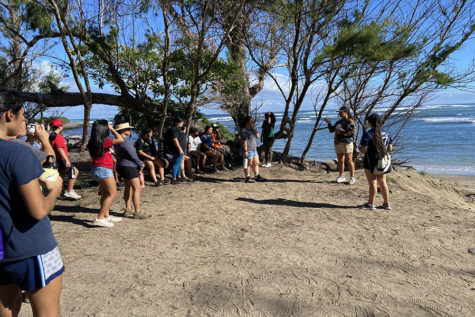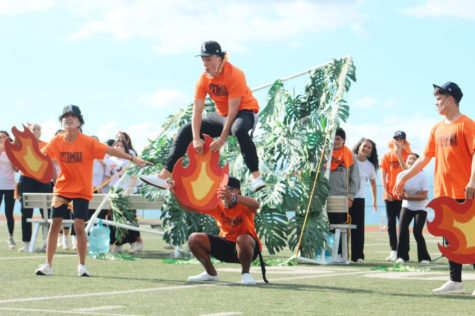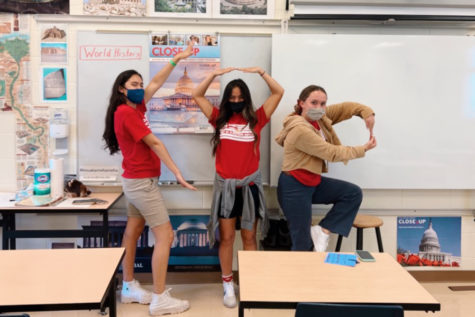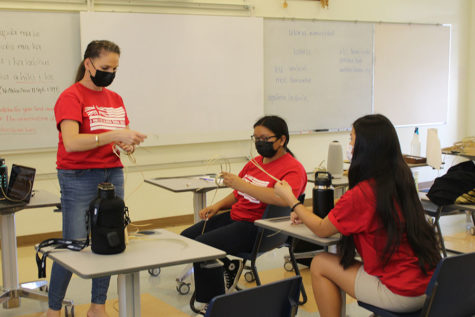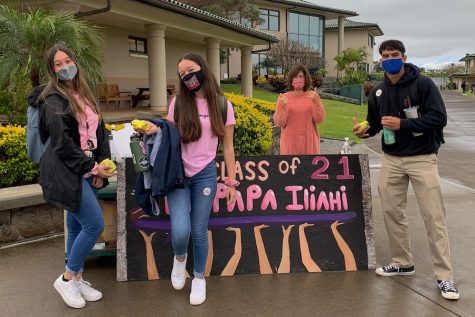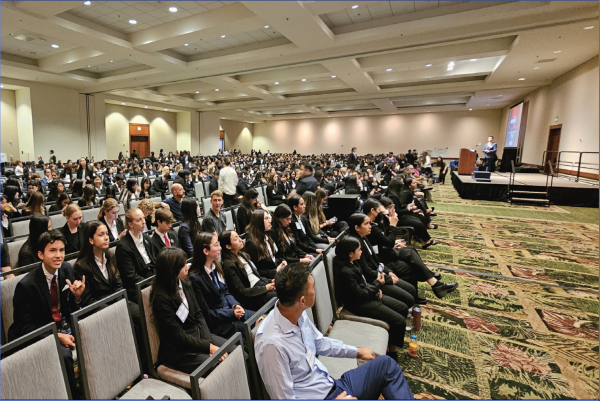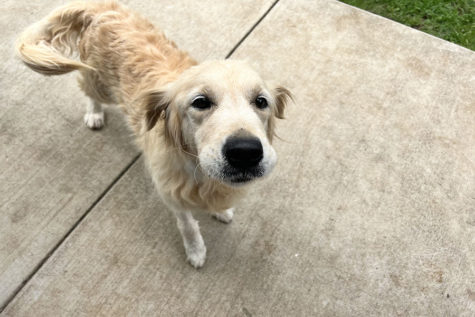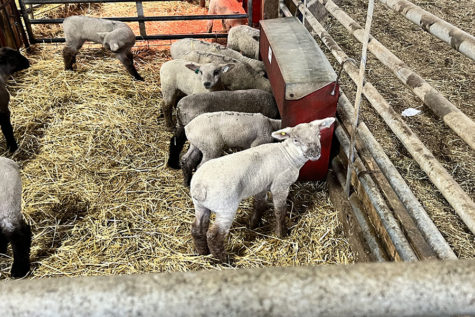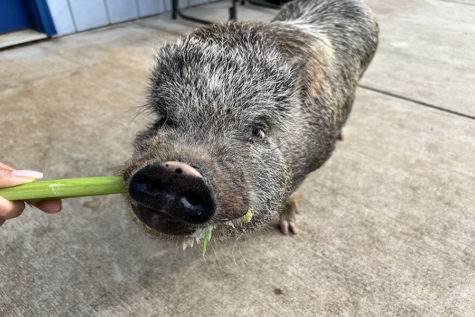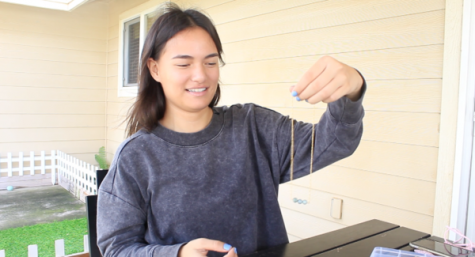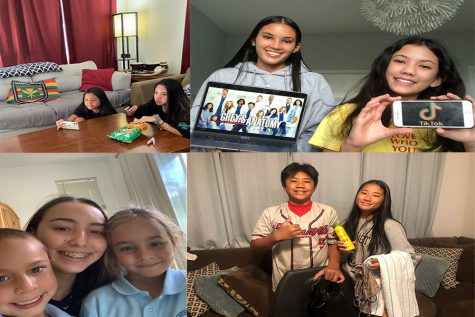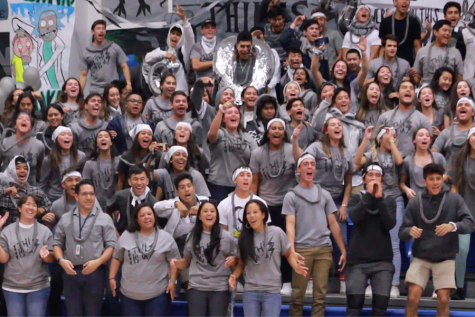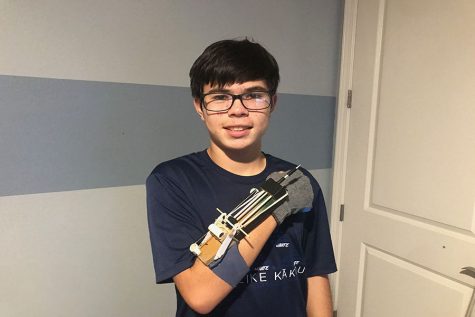5 things to know before college
Parents of alumni share advice at ʻOhana Talk-Story Night
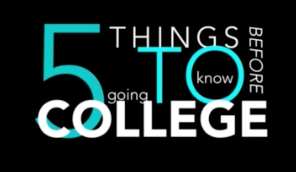
If you’re a parent about to send your child off to college, do you know the necessary actions you need to take in order to make that process a smooth one?
If you’re a college-bound student, do you even know what to expect?
Here are five of many college topics that were discussed in the Charles Reed Bishop Learning Center during the ʻOhana Talk-Story Night on Tuesday, Nov. 17.
Q: What if I don’t know what I want to be when I grow up?
While some kids know what they want to be from the start, others need to narrow down their choices, which is where internships and academies some in.
The Krueger ʻOhana, whose most recent of four alumni is Carolynn Krueger (’15), said, “If you have a child who honest-to-God knows what they want to be, you are so lucky.”
A: Internship programs, such as the one at KS Maui, can help students with career choices.
The Tua ʻOhana said that their son, Ionatana Tua (’15), did an internship that changed what he thought he wanted to study.
A: The academy-style curriculum that the high school has also impacts students’ career choices.
Ms. Lisa Correa referred to past alumni and said that sometimes, they discovered a passion for an area of study and other times, spending two years in the academy system showed them what they “didn’t want to do,” contrary to what they originally thought when choosing an academy.
Ms. Correa is the college and post-high counselor at Kamehameha Maui, and she organized the event.
Q: Are college essays important? What do I write about? Where do I go for help?
A: “The essay is your selling point,” Ms. Correa said.
“The essay is what makes your application, you,”
— Hannah Patrick
“The essay is what makes your application, you,” senior Hannah Patrick said. She is writing four essays for her college applications.
A. Ms. Correa also said that because KS Maui requires 60 hours of community service in order to graduate, seniors have built-in material for their essays. The time spent giving back to the community and acquiring those hours makes good responses to essay writing prompts.
A. Ms. Correa also holds a “fifth block” after school on Tuesdays and Thursdays to help seniors write their college essays. All seniors willing to listen and work are invited.
But the key to making the process less stressful, Ms. Correa says, is for students to not show parents their college essays any time before the final draft. Parent feedback can make students insecure and derail the writing process when there is so much hanging in the balance. Parents can step back and let their students take the lead.
Q: Is studying abroad a good idea?
A: Kaylee Correa (’13) attends the University of Notre Dame; however, this year, she let her studies take her to Dublin, Ireland. Her father, Coach Kimo, said that the only worry about studying abroad was that it would hold her back from graduating on time, but, fortunately, it hasn’t been a problem in Kaylee’s situation.
“What was important to us was that she doesn’t lose any time,” he said.
Since studying abroad, Kaylee has traveled to London, Barcelona, Rome, Prague, Budapest, and Vienna.
There are other benefits, too.
“Every credit she’s taking is applying to her major,” Coach Correa said, “[and] we pay exactly the same, no additional cost.”
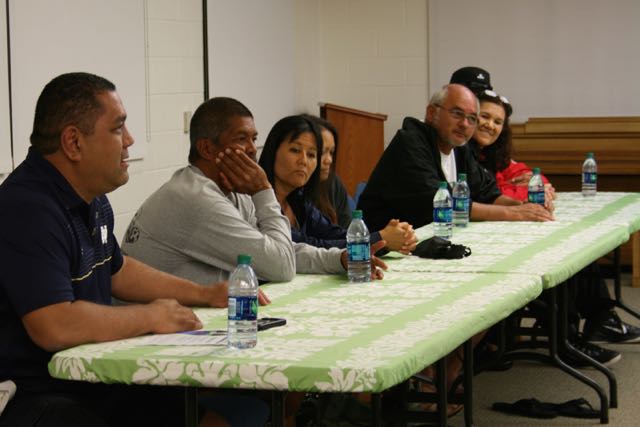
Families of alumni join the Talk-Story Night to share what they learned about the college experience, having gone through it. Pictured: Coach Kimo Correa, the Quengas, the Kruegers, and the Tuas.
Q: What if I get homesick?
A. You can reach out to KS alumni, located all over the mainland, for a family dinner, Hawaiian food, or even a Thanksgiving dinner.
Ms. Correa says that Kamehameha Schools has alumni and connections spread out all over, so in the event that a student becomes homesick, finding a fellow Hawaiian is an easy task.
A. In addition to Kamehameha Maui graduates, the mainland is also full of graduates from the two sister campuses and Hawaiʻi students nearly every island. Look for the Chinatown or Asian market areas of your new city or town, and you’re bound to find a local there.
A. The Tua ʻOhana was also fortunate enough that their oldest daughter, Teilissa (’09), had a coach from Hawaiʻi. So when the craving for Hawaiian food arose, she was able to go to her coaches for a little taste of home without actually leaving the mainland for it.
Q: How will I get extra spending money?
A: The Krueger ʻOhana said that all their children, full-time students, have worked since their freshman year.
Carolynn “works at the school gym, is a barista at a coffee shop two blocks away, and also tutors at an elementary school,” the Krueger ʻOhana said.
This is not the same for all families. The Quengas said that their son, Daniel (’13), is a student-athlete at the University of the Pacific, and it is impractical for him to work. Many student-athletes view their sports participation as their work, and that is why they are offered athletic scholarships — to help defray the cost of college; however, it all depends on the family.
Former staffer Maile Sur (’15) is a student-athlete on a soccer scholarship at Lane College, and she also works in addition to her full-time studies.

